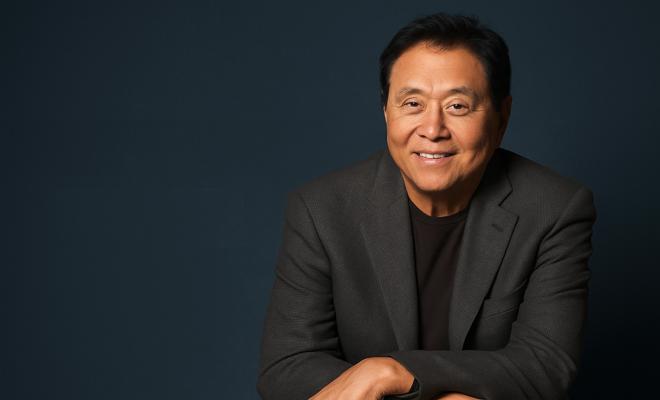
Who is Robert Kiyosaki? The Mind Behind Rich Dad Poor Dad
Learn how Robert T. Kiyosaki changed the world of personal finance with his unconventional ideas and inspiring journey. Robert Kiyosaki was born on April 8, 1947, in Hilo, Hawaii. Raised in a highly educated household, his father—whom he famously calls the "Poor Dad"—was a well-respected academic. Despite his professional credentials, Kiyosaki's father struggled financially, following the traditional path of job security and pensions. In contrast, his friend’s father—a successful entrepreneur and investor—became his “Rich Dad,” teaching him practical lessons about money, wealth creation, and financial freedom. These two contrasting perspectives would later shape the foundation of his famous book, Rich Dad Poor Dad. Kiyosaki attended the U.S. Merchant Marine Academy and served as a helicopter gunship pilot in the Vietnam War. After his military service, he worked in sales at Xerox before launching multiple businesses—some of which failed. One early venture was a company that sold Velcro and nylon wallets for surfers. These experiences taught him the importance of taking risks, learning from failure, and seeking real-world financial knowledge beyond traditional schooling. In 1997, Robert released Rich Dad Poor Dad, a book that questioned the conventional wisdom of working hard for a paycheck. Its revolutionary message—"Don’t work for money. Make money work for you."—resonated worldwide. The book has sold over 40 million copies, been translated into 50+ languages, and remains a top recommendation for anyone exploring personal finance. Building on the success of his book, Kiyosaki founded The Rich Dad Company to promote financial education through books, workshops, and games like Cashflow, a board game that teaches financial principles in an engaging way. Robert Kiyosaki has authored and co-authored more than 25 books. Some of his most impactful works include: At the heart of Kiyosaki’s message is the belief that traditional education fails to prepare people for financial success. He emphasizes: “It’s not how much money you make, but how much you keep, how hard it works for you, and how long you keep it working for you.” — Robert Kiyosaki In recent years, Kiyosaki has become an outspoken advocate for cryptocurrencies and precious metals. He believes that fiat currencies are losing value and that assets like Bitcoin, Ethereum, gold, and silver are key to preserving wealth. He frequently shares insights such as: “Buy gold, silver, Bitcoin. The end of fake money is near.” Despite his massive influence, Kiyosaki has faced criticism for: However, he maintains that his goal is to shift mindsets, not to provide one-size-fits-all solutions. Robert Kiyosaki has inspired millions to take charge of their financial lives. His teachings have influenced educators, investors, and entrepreneurs across the globe. Some of the core ideas he popularized include: Robert Kiyosaki’s influence in the financial world is undeniable. While not without controversy, his ability to ignite discussions around money and independence has helped reshape how millions view their financial futures. The biggest lesson? You don’t have to be wealthy to start investing—but you must start investing to become wealthy. His work continues through books, podcasts, interviews, and live seminars. Whether you’re a beginner or an experienced investor, Kiyosaki’s philosophy offers timeless strategies for achieving financial freedom. 🔑Early Life and Education
Military Service and Early Business Ventures 🪖💼
The Rise of Rich Dad Poor Dad 📘🌍
The Rich Dad Company 🏢
Other Publications 📚
Financial Philosophy 💵
Modern Views on Bitcoin, Gold, and Silver 🪙
Criticism and Controversies ⚠️
Impact on Financial Literacy 📈🌐
Top Quotes by Robert Kiyosaki 🗣️
Conclusion and Legacy 🏁